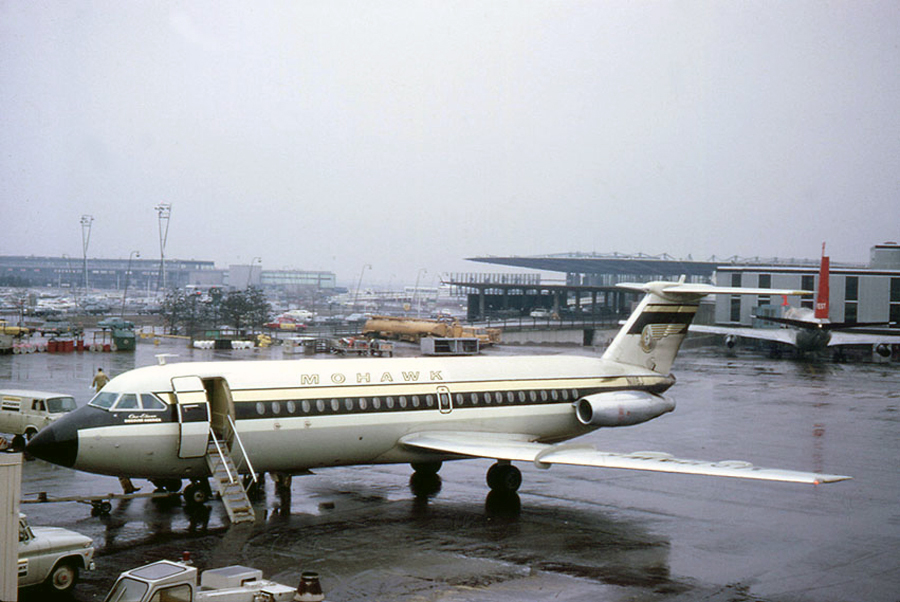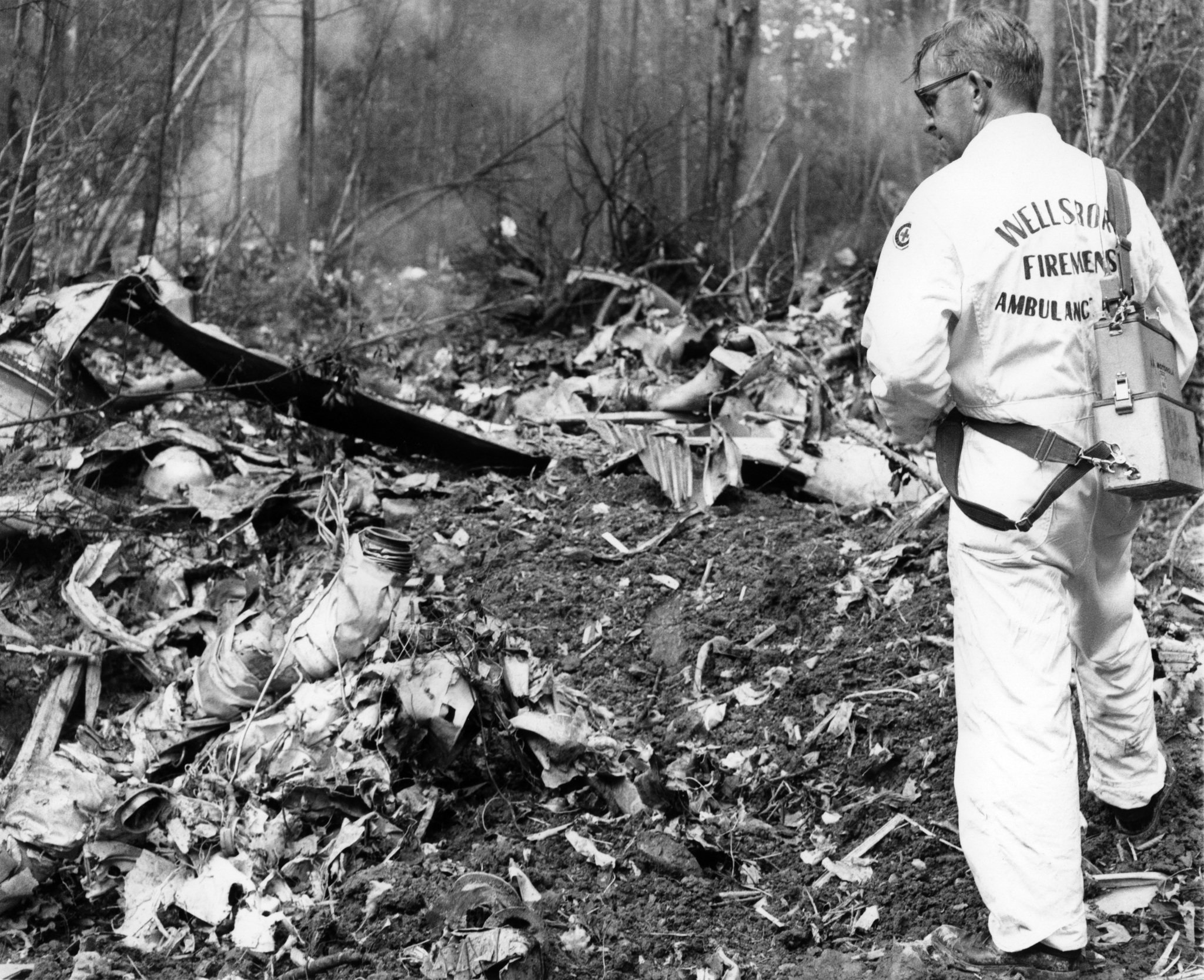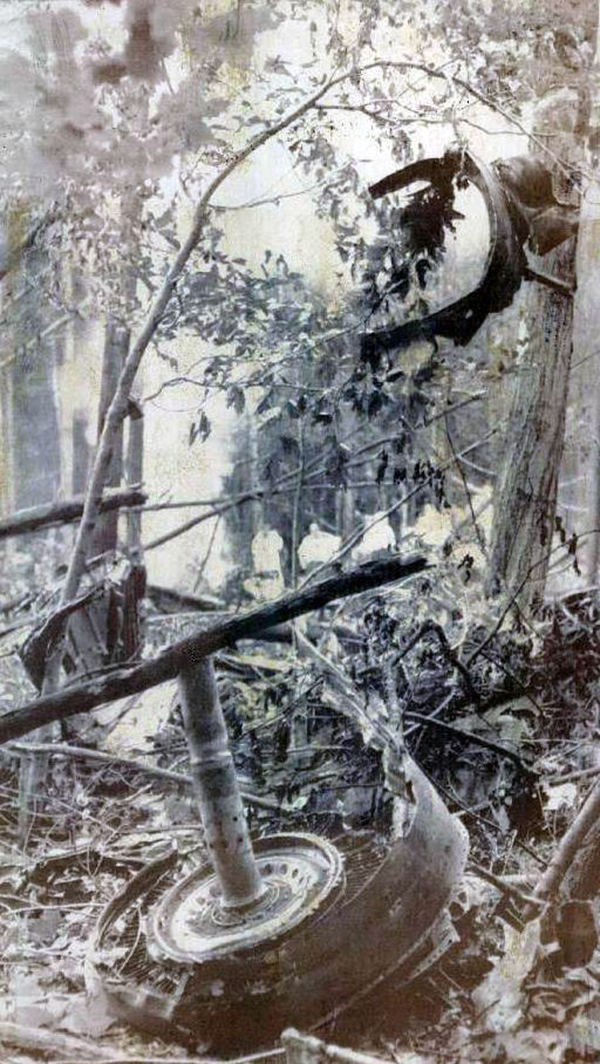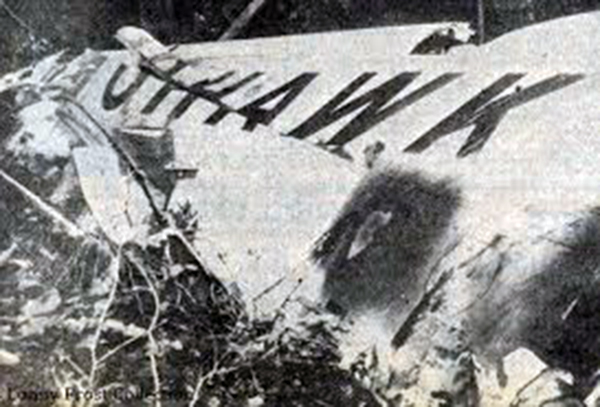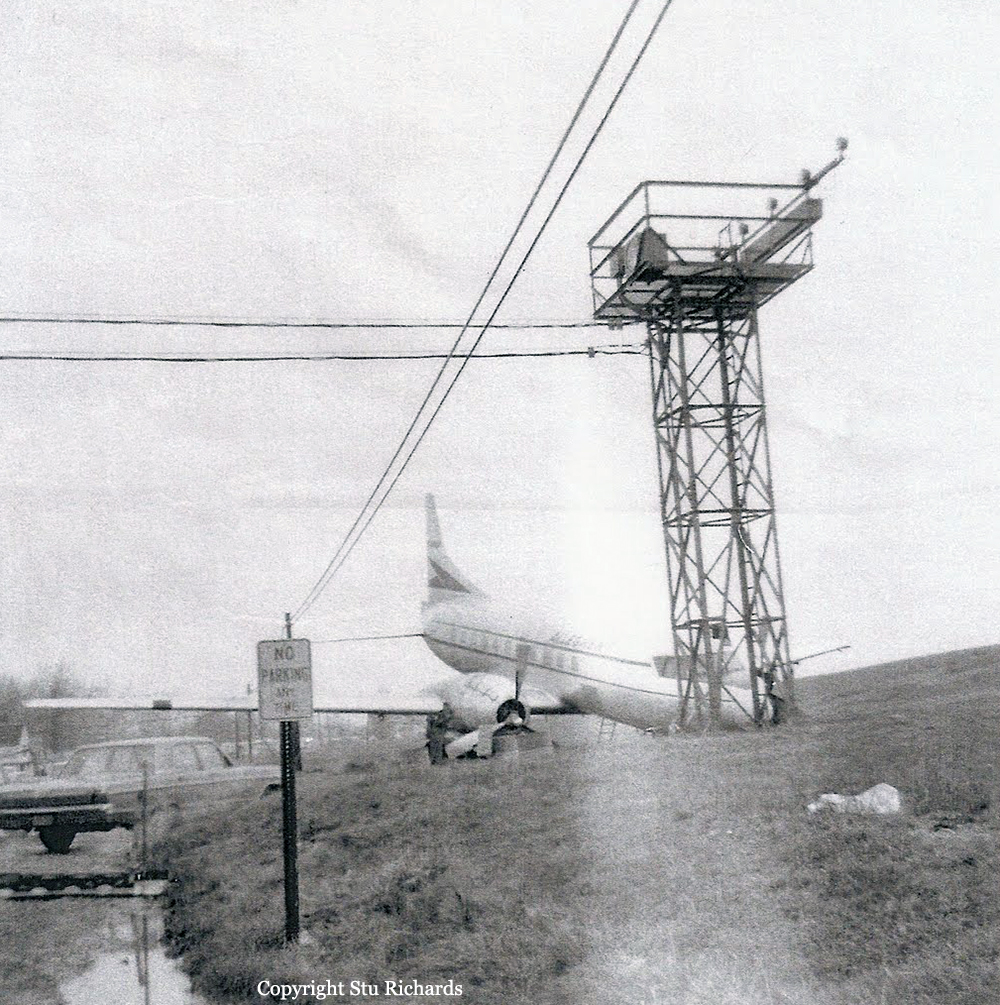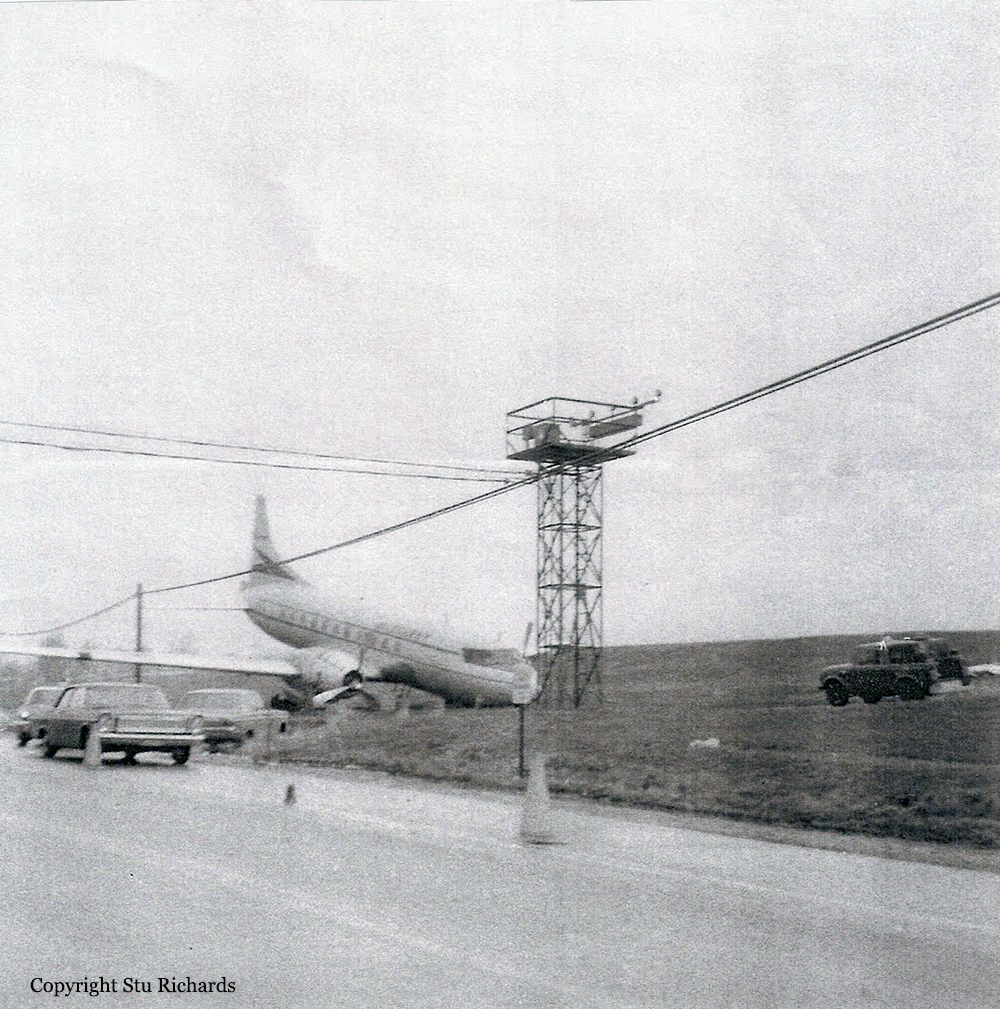Crash of a Cessna 401 in Reading: 6 killed
Date & Time:
Jun 19, 1968 at 2018 LT
Registration:
N3248Q
Survivors:
No
MSN:
401-0048
YOM:
1968
Crew on board:
1
Crew fatalities:
Pax on board:
5
Pax fatalities:
Other fatalities:
Total fatalities:
6
Captain / Total hours on type:
12.00
Circumstances:
While cruising in marginal weather conditions, the pilot encountered severe turbulences when control was lost. The twin engine aircraft entered a dive and crashed in an open field located in Mohrsville, north of Reading. The aircraft was totally destroyed and all six occupants were killed.
Probable cause:
The pilot continued under VFR mode in adverse weather conditions and attempted operation beyond experience/ability level. Turbulence associated with clouds and/or thunderstorm activity exceeded the designed stress limits of the aircraft, causing the horizontal stabilizer to buckle on both sides from positive air loads.
Final Report:





